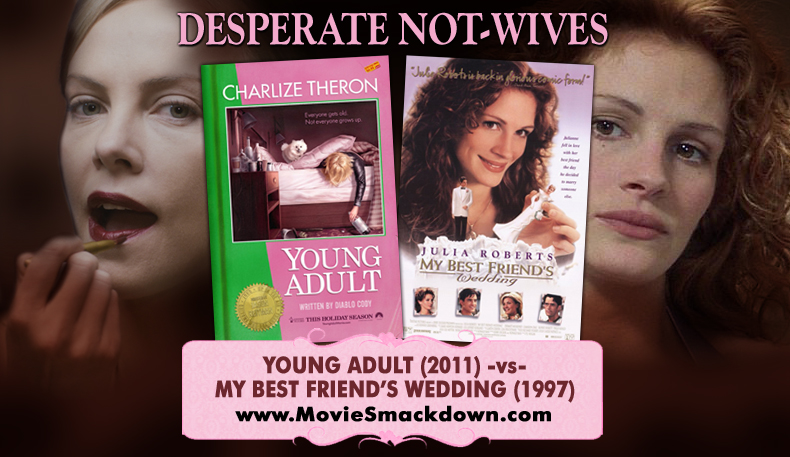
The Smackdown
A beautiful, still-single woman decides that all the good guys are taken. The solution? Take one back, and by any means necessary. That’s pretty much the high concept behind both Young Adult, screenwriter Diablo Cody’s new black comedy bravely starring Charlize Theron as a Minnesota high school beauty queen coming back to rekindle the flame with her married-with-baby ex-boyfriend, and My Best Friend’s Wedding, a Julia Roberts vehicle in which she travels back to Chicago to reclaim a sportswriter she never really wanted until another girl (Cameron Diaz) decides he’s marriage material.
Julia is Julianne Potter come to spoil the wedding. Charlize is Mavis Gary, come to spoil the baby-naming. These screwed up protagonists want to take back what is rightfully theirs—or so they think. In fact, these two women are so self-centered they can’t believe their romantic interests had the nerve to move on without them—and, what’s really galling, so happily. It just can’t be.
The stakes are clear: Get the guy back no matter the collateral damage to wives, babies, or fiancés. All’s fair in love, war and Movie Smackdowns, and this has it all. So which film wins—My Best Friend’s Wedding or My Best Friend’s Baby? Home-wreckers, take your marks.
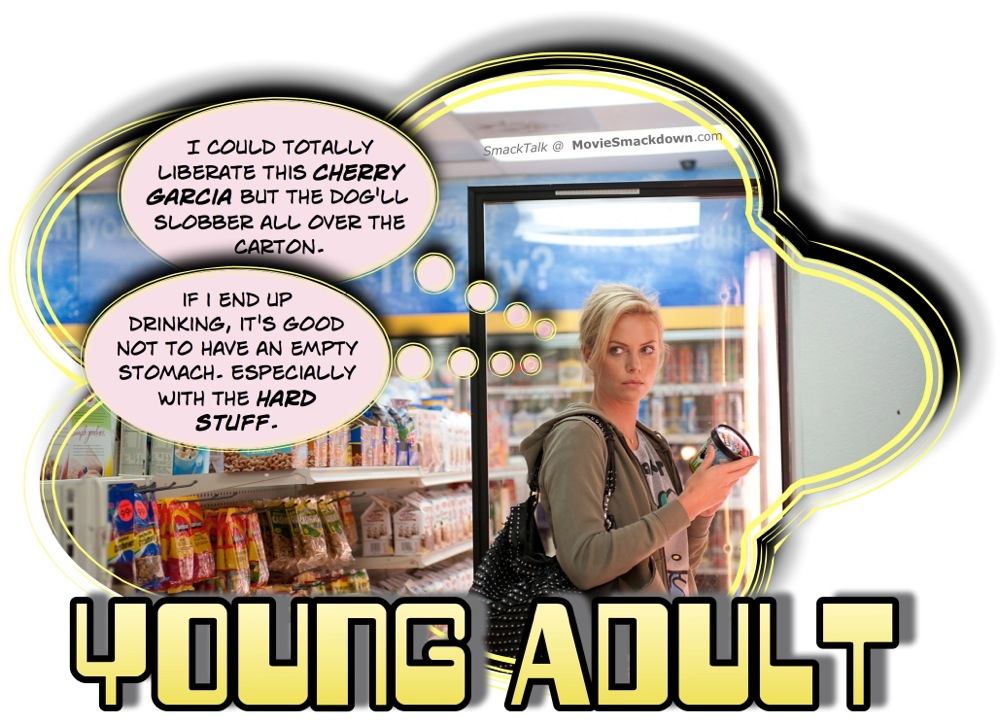 The Challenger
The Challenger
People don’t change. That’s the truth behind the unique character of Mavis Gary, birthed in glorious detail by writer Diablo Cody in her latest pairing with director Jason Reitman. But Mavis is a world apart from Diablo’s earlier creation, the spunky teen Juno MacGuff, who used humor, uncanny wisdom and a good heart to navigate herself out of a tough situation. Mavis, on the other hand, is the one-time popular girl who now relives her high school glory as a writer of a young adult book series but finds herself empty and rudderless. Charlize Theron gives a tour-de-force performance as Mavis-the-not-so-magnificent-anymore. We wish she would change and put the shallow, better-than-everyone-else self in a drawer, but in Cody’s vision, it’s not gonna happen. Director Reitman lays out the agony of keeping up appearances in aching detail, from the masochistic beauty rituals to the dress-to-manipulate scheming that goes with using knockout looks for nefarious intent.
In a Q-and-A following a recent screening, Cody talked about finding black comedies in America’s heartland, the part of the country she comes from. We do believe she writes of what she knows. As an Oscar winner her first time out of the gate, she remains an enormously talented, fresh voice, and it’s always interesting to see what she will create next.
When Mavis returns to her hometown to re-capture the heart of Buddy, played with a middle-of-the-road calm by Patrick Wilson, we understand that something is sadly missing in her life. But the way Cody draws Buddy’s dull life, we start to wonder if Mavis shouldn’t shoot higher. There’s nothing subtle about her intent to win him back; everyone can see her lock target a mile away—except, apparently, for Buddy. And if he is that stupid, is he worth having?
Mavis also runs into another blast from her past, her nearby locker- mate, the nerdy Matt Freehauf (Patton Oswalt). She acts like she doesn’t remember him, then gloms onto him like a long-lost family member. This relationship shows how desperate and pathetic Mavis really is, and the odd choice of a romantic interlude between the two here is the single biggest miss in the film.
The enjoyable parts of Mavis’ journey are the well observed insights into contemporary America with box stores and obligatory celebrations—even if they are awkwardly interrupted by a girl in so much pain she can’t see her way out of it. The ending is true to the character, and that speaks of integrity. This is definitely not by-the-numbers, folks. And that’s part of its indie charm.
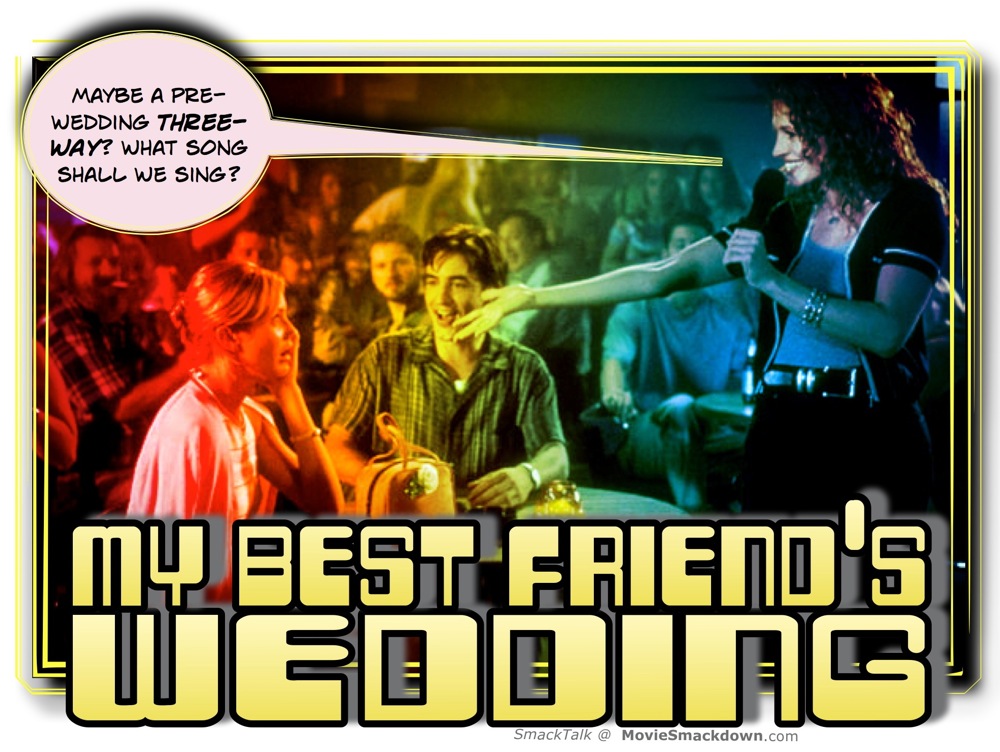 The Defending Champion
The Defending Champion
Writer/producer Ron Bass knows his way around a blockbuster; the $287 million earned worldwide by My Best Friend’s Wedding is the kind of money almost expected by this A-list writer. Better for us, he also knows his way around characters capable of becoming cultural touchstones, creating such memorable ones as the leads in Rain Man.
What Bass creates here is a beautiful but devious heroine in Julianne Potter and, in doing so, actually pulls off a rom-com without the traditional (and formulaic) happy ending. Roberts plays a restaurant critic who is critical of most things. At the top of that list is Kim Wallace (Cameron Diaz), the interloper between her and her good friend—tall, dark and handsome Michael O’Neal (Dermot Mulroney). When she hears of Michael’s engagement, she is compelled to deal with her feelings for him. Maybe he really is the one, and she’s been just too busy to notice. And now, with the wedding date approaching, it’s almost too late.
Her other best friend, the gay one, is George, and he is inhabited by Rupert Everett with sophisticated aplomb. He is there to give Julianne a reality check, as in, You want him back, really? Julianne is bent on judging Kim and finding her lacking. The problem is she’s not lacking; she’s perfect—warm, generous of spirit, and adoring of Michael. Okay, she can’t sing very well. Julianne can work with that. Especially at a karaoke bar.
The Scorecard
Competition doesn’t bring out the best in either Mavis or Julianne, but the desperation plays very differently in these films. Watching Mavis is like watching a train-wreck. She is going to self-destruct, just give her time. Julianne still seems in control of herself. She is just testing to make sure she didn’t cross something off her to-do list that she shouldn’t have. In that way, the audience may very well feel more for Mavis. She is a more true-to-life, oxygen-breathing character than Julianne. We’ve all known people stuck in a moment, even if Mavis is tragically so. Refusing to grow up is often seen as endearing in movies, but not this time. Mavis is a rom-com anti-christ, and that’s a good thing. Truth usually is.
But watching a train-wreck isn’t always the most entertaining night out, which is why black comedies are the hardest type of films to do well. They work best when there’s something to root for, even if it is the opposite of what is the traditional value. In Young Adult, no one really believes Mavis will see the light and grow up; the story never really sets it up that way. It seems a matter of watching just how far down she’ll sink, and being happy that at the end of things, she still has a pulse. And feeling sorry that people don’t change when sometimes they really need to.
Roberts’ character doesn’t grow all that much either, but at least she gains some wisdom. In the end, she makes a choice that feels more emotionally satisfying. So, brutal, emotional honesty or satisfying conclusion—which makes the better film?
The Decision
Both films set convincingly gifted beauties back to retrieve hapless men. Both make the journey interesting and unpredictable. Both are populated with talented actors giving great performances. But one movie gives filmgoers actual laughs versus uncomfortable smiles of recognition on its way to delivering a more entertaining night at the cinema. The same movie gives audiences a reason not to get a gun and kill themselves at the tragic nature of the human race. It may be more populated with old-school rom-com nuts and bolts, but there’s a reason those conventions survive. For sheer enjoyment and a reaffirmation of the power of love to build, not destroy, let My Best Friend’s Wedding entertain you.



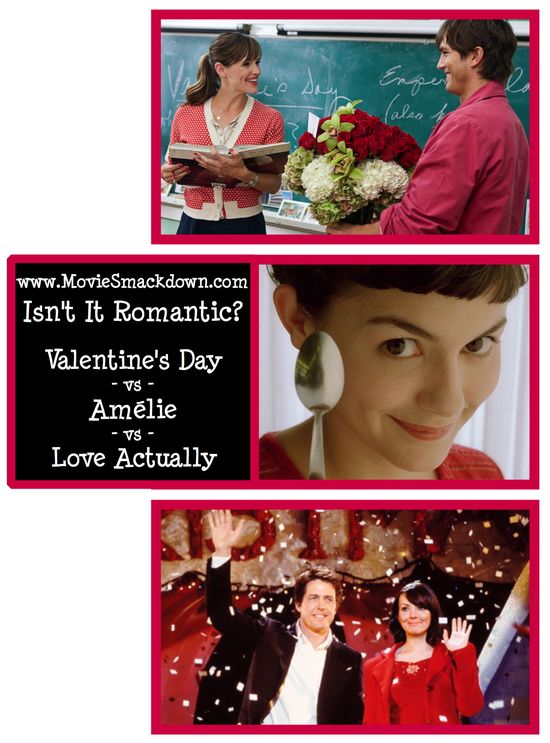
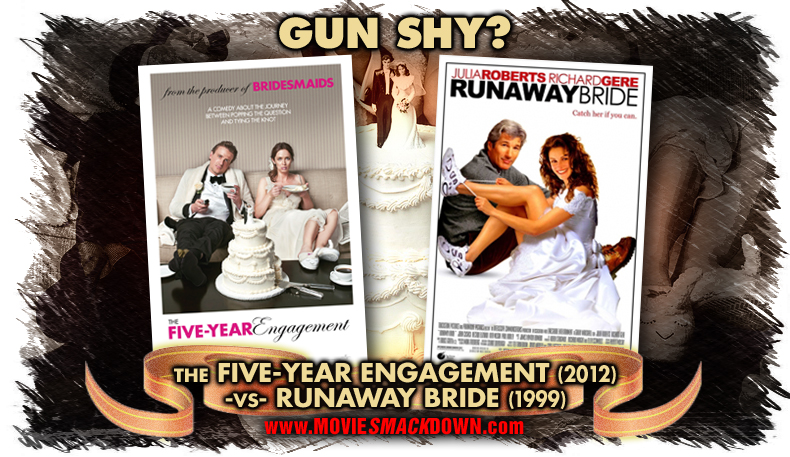
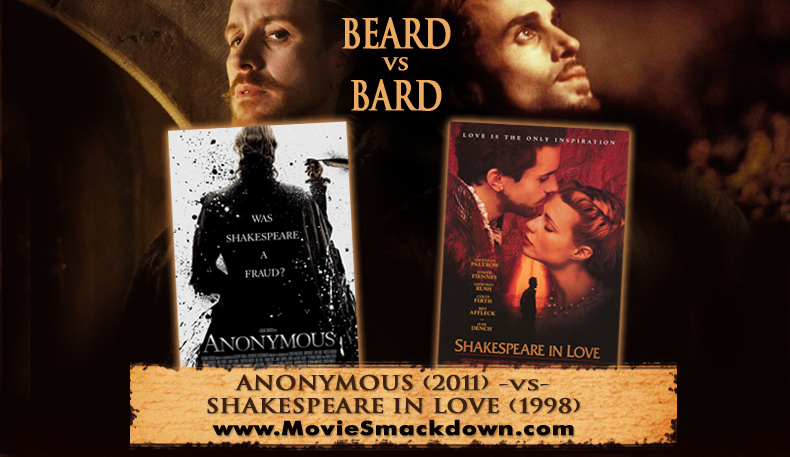
Leave a Reply